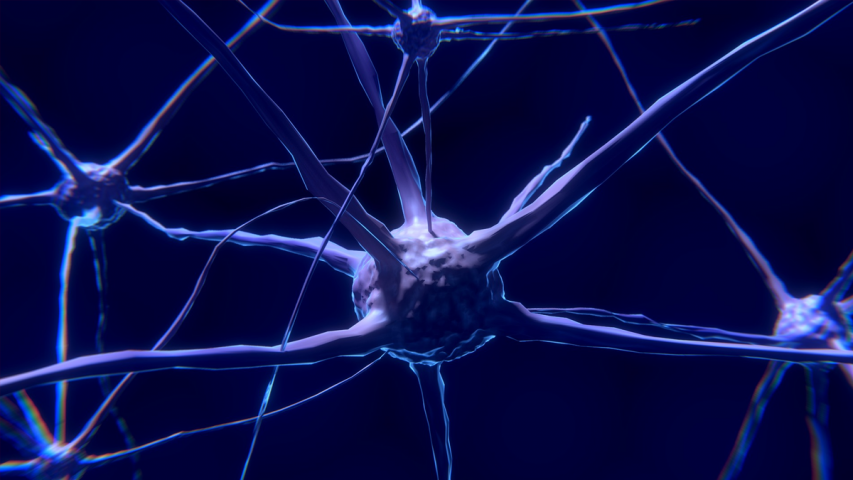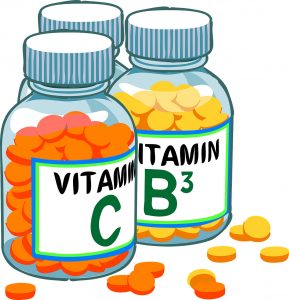- Have any questions? Contact us!
- info@dr-rath-foundation.org

Worldwide Study Finds Hundreds Of Rivers Containing Dangerous Levels Of Antibiotics
May 23, 2019
Diabetes In Pregnancy Linked To Vitamin D Deficiency
May 24, 2019New Scientific Review Concludes Vitamins May Have Benefits In Treatment Of Parkinson’s Disease

A new scientific review published in the Oxidative Medicine and Cellular Longevity journal has concluded that vitamins may have benefits in the treatment of Parkinson’s disease. Authored by researchers in China, the review found that numerous clinical studies, as well as animal and cell experiments, have demonstrated a relationship between vitamins and the condition. The researchers state that proper supplementation of vitamins can reduce the incidence of Parkinson’s disease in the general population and improve the clinical symptoms of patients suffering from it.
The second most common age-related neurogenerative disorder after Alzheimer’s disease, more than 10 million people worldwide have Parkinson’s. A condition in which certain nerve cells in the brain progressively die, the symptoms include tremor, rigidity, extreme slowness of movement, and impaired balance. Swallowing and speaking difficulties are also common in sufferers.
The nerve cells affected in the disorder are those responsible for producing dopamine, an important chemical messenger in the brain. The typical symptoms of Parkinson’s appear when levels of dopamine become too low.
The main orthodox treatment given to patients is an amino acid known as L-dopa (Levodopa). The body can use L-dopa to make dopamine. Despite L-dopa treatment, however, the disease generally gets worse over time. As such, there is a clear need for safe and effective adjunctive therapies to be found.
The therapeutic potential of vitamins in Parkinson’s disease
The vitamins discussed in the Chinese review include vitamin B3 (nicotinamide, the active form of niacin); vitamin C; vitamin E; and vitamin D.
Recognizing that the relationship between B vitamins and Parkinson’s is receiving increasing attention these days, the authors examine the neuroprotective effects of vitamin B3. Noting that clinical studies have shown that diets high in niacin can reduce the risk of Parkinson’s disease, they cite a case report which demonstrated that use of niacin supplements improved rigidity and speed of movement.
 The ability of vitamin C to improve the absorption of L-dopa in elderly patients is also referred to in the review. Interestingly, the authors note that previous studies have shown that vitamin C can reduce the necessary dosage of L-dopa without lowering its efficacy. They also describe how the level of vitamin C in lymphocytes, a type of white blood cell, has been found to be significantly lower in patients with severe Parkinson’s. A study cited in the review involving 1036 patients supported this finding, showing that dietary vitamin C intake significantly reduced the risk of the disease.
The ability of vitamin C to improve the absorption of L-dopa in elderly patients is also referred to in the review. Interestingly, the authors note that previous studies have shown that vitamin C can reduce the necessary dosage of L-dopa without lowering its efficacy. They also describe how the level of vitamin C in lymphocytes, a type of white blood cell, has been found to be significantly lower in patients with severe Parkinson’s. A study cited in the review involving 1036 patients supported this finding, showing that dietary vitamin C intake significantly reduced the risk of the disease.
The authors also note that many studies have shown vitamin E supplementation can reduce the risk of Parkinson’s. In doing so, they describe a pilot trial which found long-term treatment with vitamin E may delay the use of L-dopa in patients suffering from the condition.
High levels of serum vitamin D are also cited in the review as reducing the risk of Parkinson’s. The authors write that substantial epidemiological and clinical studies now suggest vitamin D has a positive effect on the disease. Particularly interestingly, noting that vitamin D can be synthesized in the body when skin is exposed to sunlight, they describe how lower levels of this vitamin and sunlight exposure are associated with an increased risk of the disease. Further emphasizing the importance of vitamin D, they state that patients with low levels may exhibit more severe symptoms and that supplementation can prevent deterioration.
With the incidence of Parkinson’s increasing, and its combined direct and indirect costs already estimated to be nearly $25 billion per year in the United States alone, the need for safe and effective therapies will only continue to grow. Given the proven safety of vitamins, the approaches examined in this scientific review deserve serious consideration from physicians and researchers alike.



